Woodworking Workshop
In this workshop, you will learn both traditional and modern wood-processing techniques. You will explore the properties of wood and learn to turn it into useful everyday objects. Experienced instructors will guide you through the process, from your first prototype to the final product. You can also do internships here.
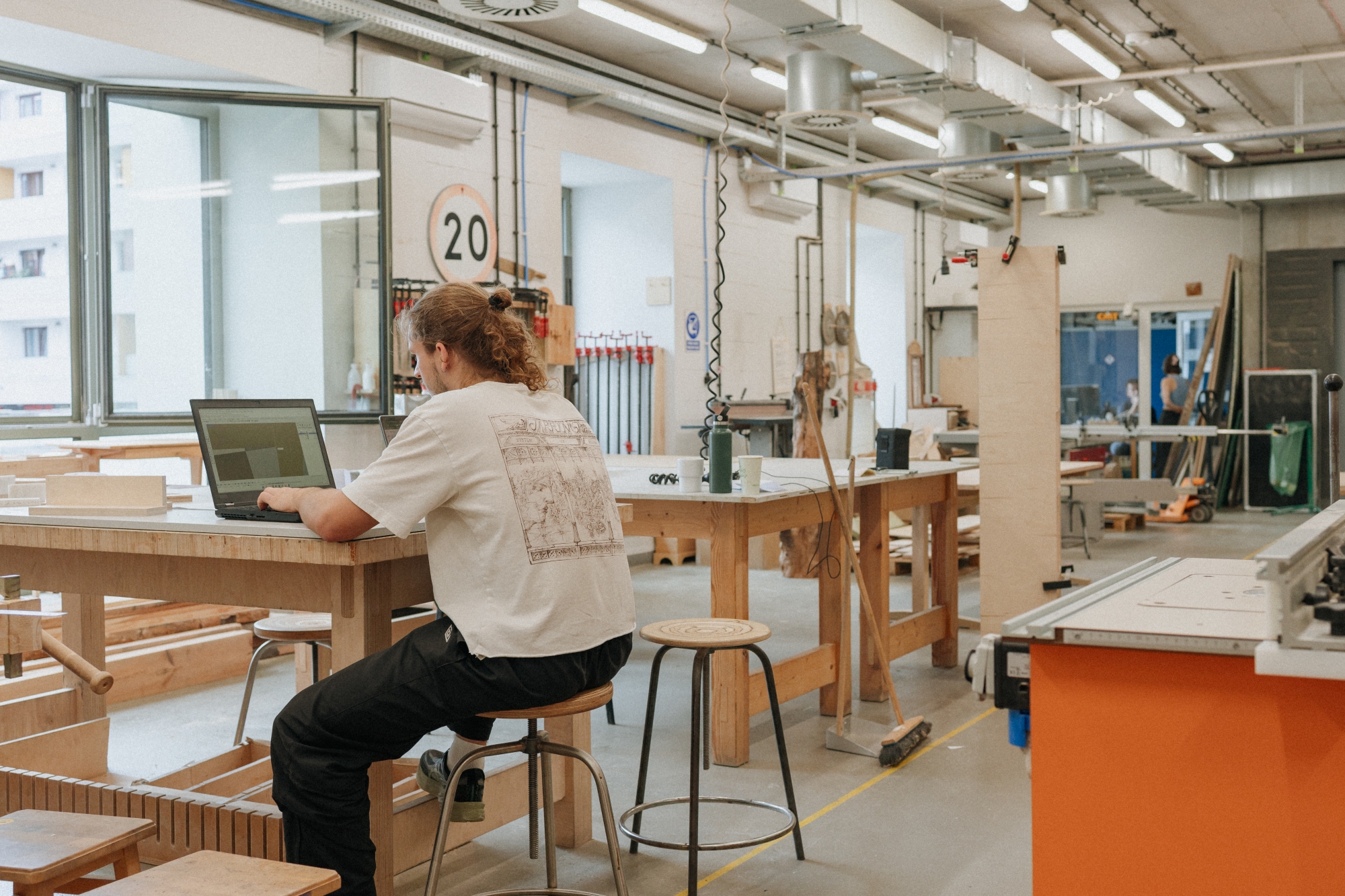
Equipment
What can you use here?
You will use professional machines such as CNC routers, table saws, milling machines, a wood lathe, a band saw, various drills, and sanders. There is also a wide selection of power and hand tools, as well as a storage area for materials.
The workshop includes a prototyping room for brainstorming and team projects, which is available even outside class hours. There is enough space here to work on large-scale projects.
You can use most machines after finishing the required safety training. If you want, you can get extra one-on-one training to learn how to use all the equipment.
Learning Opportunities
What can you learn here?
You will learn wood-processing techniques, including cutting, sanding, drilling, bending, woodturning, gluing, and planing.
You will create prototypes using different techniques. Starting with raw wood, you will prepare plywood and glued-laminated boards, then shape them by hand and with machines. You will also learn about different types of engineered wood and how to join and shape them. Finally, you will design your own tools and custom parts for your projects.
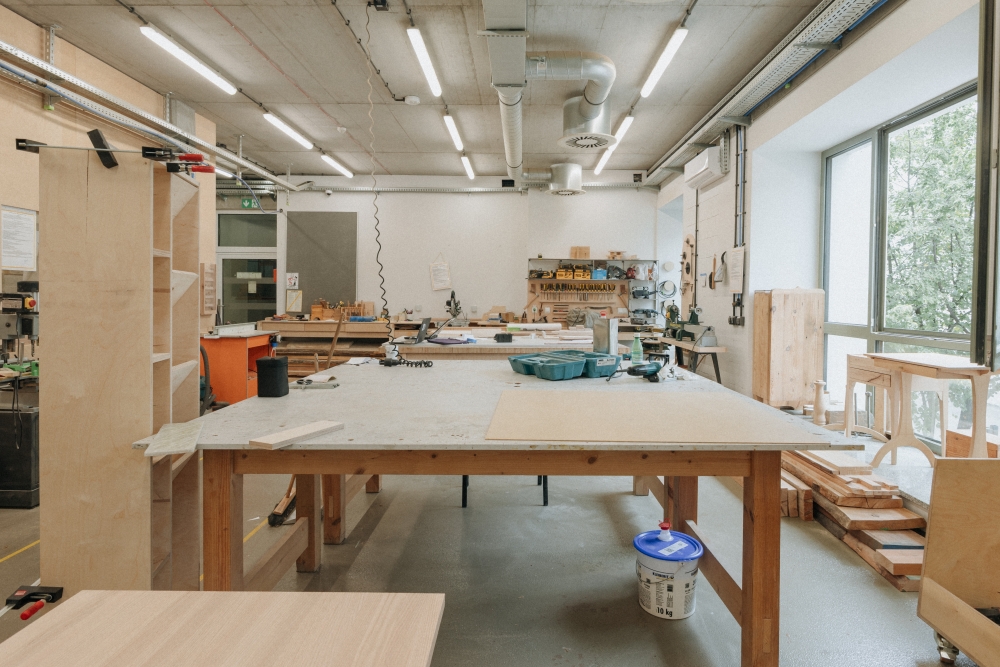
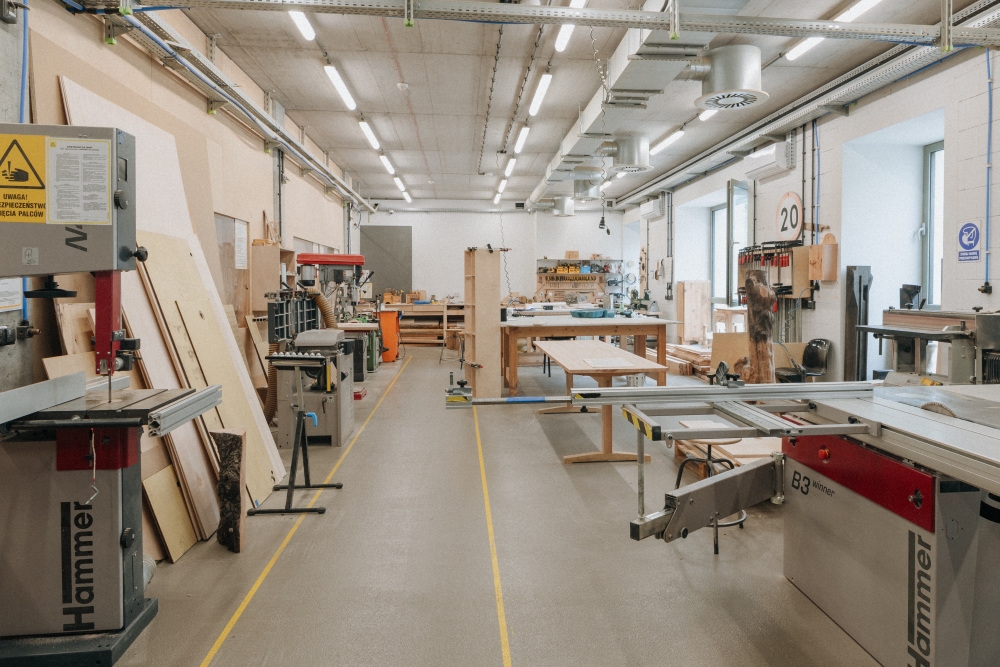
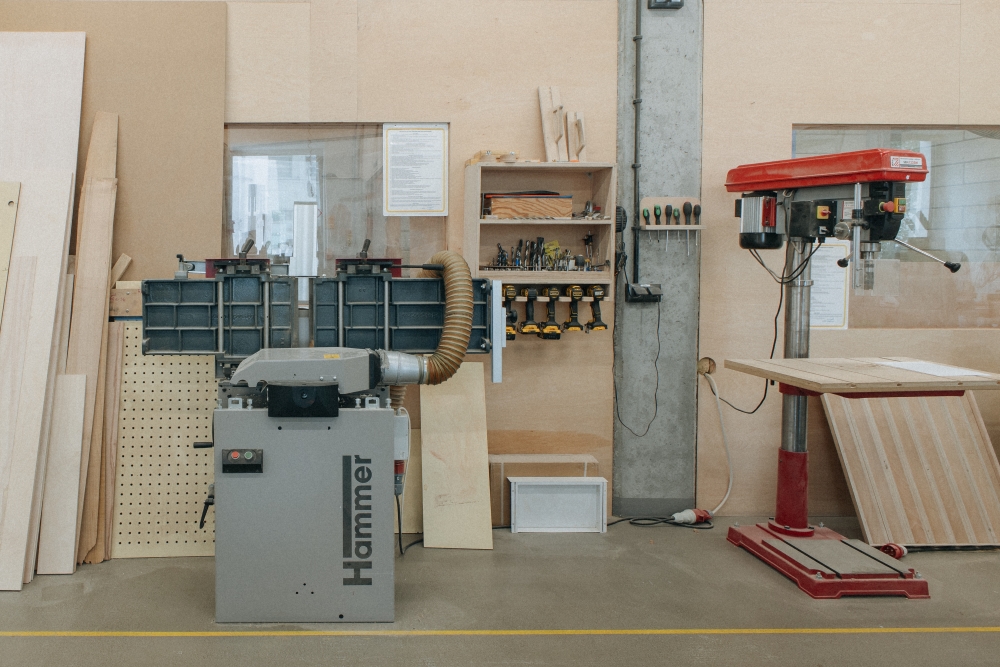
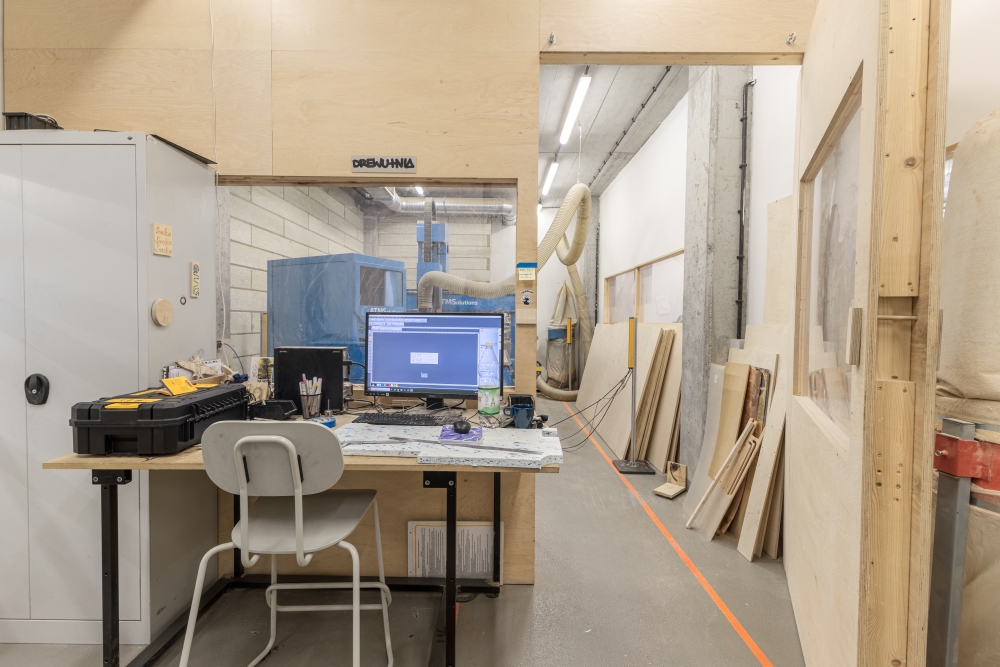
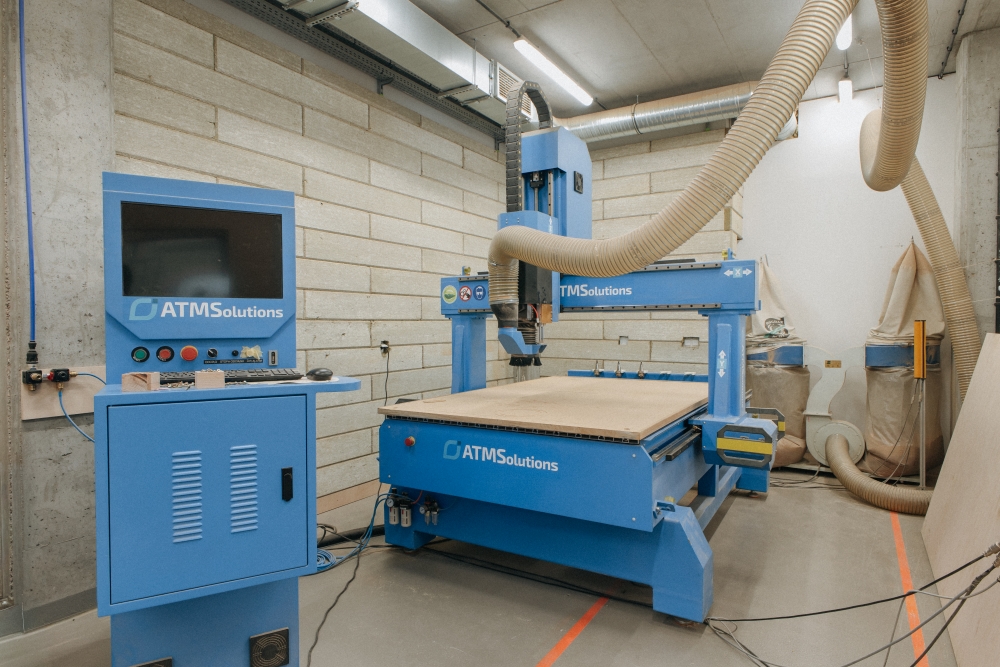
Head
Szymon Pasierb
Head of the woodworking and metal workshop,
Lecturers
Daniel Drzymała
Assistant in the Metal Workshop and the Woodworking Workshop
Zofia Parzych
Assistant in the Metal Workshop and the Woodworking Workshop
